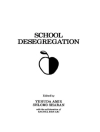‘The book is well-written, interesting, informative, thorough, and useful! As an educator for 43 years, this is the sort of text that I would be pleased to use in my classroom!….I would highly recommend this book! It is an important contribution to the field!’– Gerry R. Cox , Ph D, in Illness, Crisis and Loss
This core, introductory textbook for undergraduate and graduate level courses is the first volume to combine the knowledge and skills of counseling psychology with current theory and research in grief and bereavement. It is grounded in the belief that grief counseling is distinct from other therapeutic issues because grief is an adaptive response rather than a form of pathology. The book describes the unique aspects of grief as a normal response to loss, and views the goal of counseling bereaved individuals as one of facilitating the unfolding of the healthy and adaptive aspects of the process as it manifests itself within each client. Grief is considered a response to losses that are both death- and non-death-related; and psychological, physical, social, economical and practical experiences of grief are addressed.
The text introduces various theories of bereavement and examines different therapeutic modalities that can be used in the context of grief and loss. Specific counseling practices that facilitate successful interventions are discussed, particularly that of ‘presence, ‘ considered by the authors to be the primary therapeutic stance when working with bereaved individuals. The text also addresses grief counseling with special populations, ethical issues, and self-care concerns for counselors. Case studies, discussion and reflection questions, and suggested additional resources are included in each chapter.
Key Features:- Regards grief therapy as a unique form of counseling based on grief as an adaptive response rather than as a form of pathology
- Combines the knowledge and skills of counseling psychology with current research in grief and bereavement
- Written by a prominent clinician and an educator with over 60 years of combined experience in grief counseling
- Focuses on the importance of ‘presence’ as the most important therapeutic foundation for working with bereaved individuals
Tabla de materias
‘
Preface Acknowledgments
Part I: Theoretical Underpinnings
Chapter 1: Basics About Counseling
Chapter 2: Unique Aspects of Grief Counseling
Chapter 3: Theories and Orientation to Bereavement
Part II: Practice and Process
Chapter 4: The Practice of Presence
Chapter 5: The Basics of Counseling Practice
Chapter 6: Working With Bereaved Individuals
Chapter 7: Living Losses: Nonfinite Loss, Ambiguous Loss, and Chronic Sorrow
Chapter 8: Working With EmotionsóYours and Theirs
Chapter 9: When Grief Goes Awry
Chapter 10: The Clinicianís Toolbox: Therapeutic Modalities and Techniques in the Context of Grief
Chapter 11: Ethical Issues in Grief Counseling Practice
Part III: Current Issues and Trends
Chapter 12: Caregiver Issues for Grief Counselors
Chapter 13: Current Trends and Issues for Grief Counselors
Afterword
Index’
Sobre el autor
Darcy L. Harris, Ph.D., FT, is an associate professor in the Department of Interdisciplinary Programs at King’s University College at Western University in London, Ontario, Canada, where she is the coordinator of the Thanatology Program. She also maintains a private clinical practice with a focus on issues related to change, loss, and transition.












